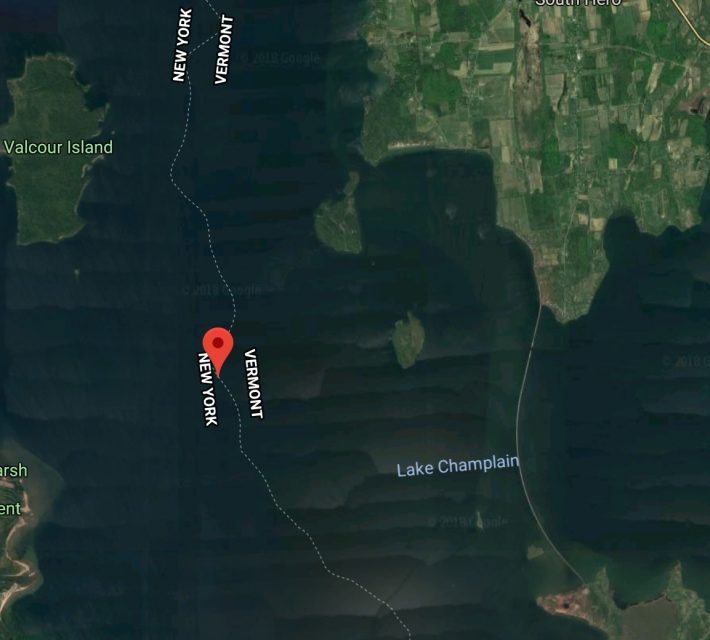WASHINGTON, United States (AFP) — Technology won’t always save us.
A man blindly following his GPS app has driven an SUV with two passengers on board into an icy lake in the northeastern state of Vermont, local police said.
The trio — friends from out of state driving a borrowed car — escaped unharmed, local media and police in the city of Burlington said in their report of the January 12 incident.
The unnamed driver of the Jeep Compass “followed the GPS directions, which advised to go straight, and upon following this he went down the boat ramp onto the ice,” the report read.
The vehicle initially slid, but the ice on the surface of Lake Champlain quickly cracked and the Jeep sank.
The officer who wrote the report said he believed the driver “was not under the influence of alcohol or drugs at the time of the incident.”

“The only visible portion of the vehicle was its rear bumper,” as the rest of the car was submerged, the report said.
It added that the time of the accident “there was a heavy rain and slight fog in the area.”
“I was speechless,” vehicle owner Tara Guertin later told WCAX-3 local CBS affiliate television.
“My first thing was, ‘Is everybody OK?’ Because this could have had a very bad ending, and luckily everybody was alright.”
The Jeep was finally pulled from the water on Monday.
Guertin told local reporters that the driver was using the Waze app, which uses user-supplied data to help people find alternate routes to avoid traffic jams or speed cameras.
Google, the internet giant that owns Waze, could not explain how the app directed the driver into the lake.
“Waze maps are updated with millions of edits to adapt to real-time road conditions daily, often making them the most accurate available,” Google spokesperson Julie Mossler told USA Today.
Mossler sagely advised drivers “to keep their eyes on the road and use all environmental information available to them to make the best decisions as they drive.”
© Agence France-Presse








